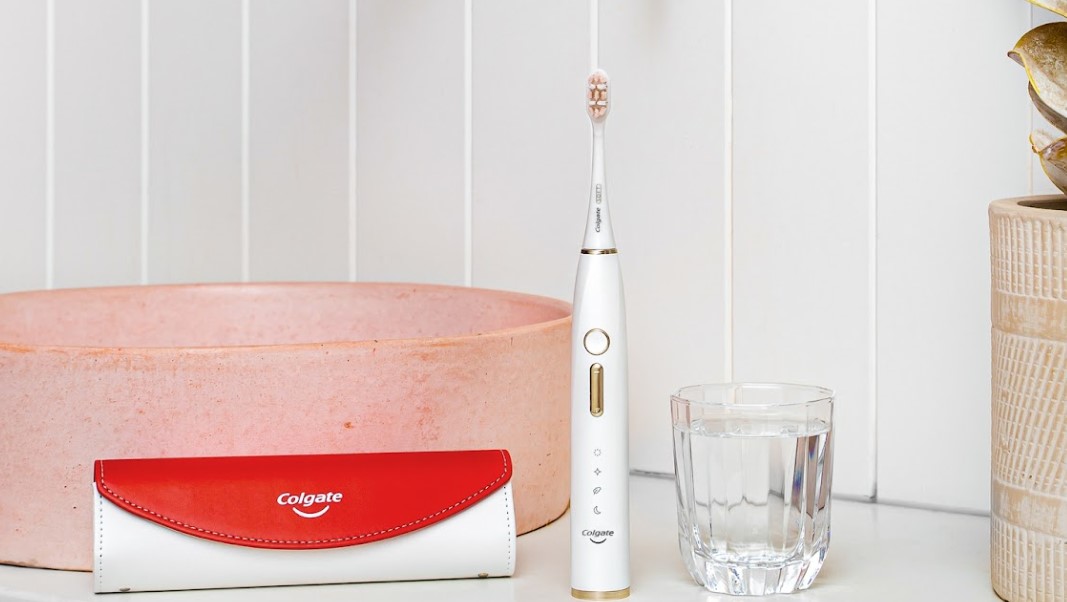So, what is gum disease?
Gum disease, also called periodontal disease, has three stages.
- Stage one: gingivitis. A mild form of gum disease, gingivitis is an inflammation of the gums caused by plaque (also known as dental biofilm) and tartar build-up on teeth. The positive news is that gingivitis is reversible if treated, stopping gum disease in its tracks.
- Stage two: periodontitis. Untreated gingivitis could turn into periodontitis. This disease affects the gum tissue more seriously, causing gum pockets and infection of the tissue supporting the teeth- bone and periodontal ligament.
- Stage three: advanced periodontitis. At this point, the gum and supporting tissue will have detached from the teeth quite significantly. This can lead to gum abscesses, as well as the teeth becoming loose and eventually falling out.
Gum disease is also linked to other health conditions, such as diabetes and cardiovascular disease.
What are the symptoms of gum disease?
Common signs of gum disease can alert you that there might be a problem. If you experience any of the symptoms noted below, make a dental appointment as soon as possible:
- Swollen, red, tender gums.
- Bleeding gums when you brush, floss or eat certain foods.
- Longer-looking teeth and receding gums.
- Spaces developing between teeth and gums.
- A build-up of pus between teeth and gums
- Loose teeth.
- Chronic bad breath.
- Mouth sores.
- Persistent mouth pain.
- Teeth becoming misaligned.
- Partial dentures fitting differently.
If you have any of these symptoms, your dental professional can examine you and confirm if you have gingivitis or periodontitis or not. They will then advise you on treatment options.
What is the treatment for gum disease?
To treat gingivitis, your dental professional can perform dental scaling to remove plaque and calculus. They will also advise you on the appropirate homecare to prevent a recurrence. You will need to attend for regular check ups to be sure you are managing the condition. Remember, treatment for gingivitis can reverse this form of gum disease.
If you develop periodontitis, your dental professional will perform scaling and root planing if the disease is in its early stages. If the disease is more advanced they will usually refer you to a gum specialist called a periodontist. Periodontitis treatment may require surgical procedures, such as:
- Periodontal flap surgery to allow access to areas of the tooth roots that need to be cleaned
- Pocket reduction to enable you to keep the teeth clean more easily or in some cases regenerative procedures may be undertaken.
How can I prevent gum disease?
Be a hero to your gums by taking these steps to zap plaque and control periodontal disease.
Visit your dental professional at least once but ideally twice a year unless they recommend a more frequent recall. With regular check-ups and cleanings, your dental professional can spot early gum disease – even if you don’t experience symptoms. They can then treat your gum disease and potentially stop it from advancing.
Make your home oral health care routine non-negotiable. Even if you’re rushed in the morning or bone-tired at night, find a couple of minutes twice a day to follow these essential oral hygiene steps:
- With fluoride toothpaste and a soft toothbrush, brush your teeth properly at least once in the morning and once before bedtime.
- Floss once a day (at night is good so your teeth are as clean as possible before bed). Also called interdental cleaning, flossing removes the plaque brushing doesn’t get to.
- Rinse with an antibacterial mouthwash daily.
- Replace your toothbrush at least every three months to keep the bristles at their most effective.
Keep healthy in mind and body. Your oral health can affect your overall health – and vice versa. Since certain risk factors might increase your chance of developing gum disease, take the following steps to stay healthy all over:
- Eat a balanced diet and keep plaque-loving sugar to a minimum. This will also lower your risk of diabetes, another gum disease risk factor.
- Give up smoking and other tobacco products, including chewing tobacco.
- Ask your doctor for advice on switching from medications that cause dry mouth to ones that don’t.
- Reduce your stress using meditation, yoga, exercise, gratitude journaling, and other lifestyle changes. Decreasing your stress is a good thing even if your gums are in perfect condition.
By taking preventative action now, your gums should have a long, happy, healthy life.
This article is intended to promote understanding of and knowledge about general oral health topics. It is not intended to be a substitute for professional advice, diagnosis or treatment. Always seek the advice of your dentist or other qualified healthcare provider with any questions you may have regarding a medical condition or treatment.














